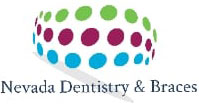Lemon juice, and beverages that have lemon juice as one of their ingredients, may taste good, but they’re extremely harmful for your teeth. In this post we’ll discuss the effects lemon juice has on your teeth, what signs you can look for to see if your teeth may have been damaged by your lemon juice habit, and what steps you can take to minimize the amount of damage done to your teeth.
What harmful effects can lemon juice have on your teeth?
Lemon juice has the the most citric acid of all different fruit juices. Acid of any kind can stick to your teeth and cause the enamel to erode. They also can feed bacteria and form plaque or tartar on your teeth, which can cause cavities.
How can I reduce the amount of damage done to my teeth if I like to drink lemon juice?
Try sipping the beverage through a straw. Be sure to swallow the beverage instead of letting it sit in your mouth for a long time. That reduces the chances of it touching your teeth. If you do drink a beverage that has lemon juice in it and forget to use a straw, drink water afterwards. That should reduce the amount of acids that would otherwise stick to your teeth.
Don’t brush your teeth immediately after drinking something that contains lemon juice.
The citric acid in lemon juice weakens your enamel, so brushing right after drinking something with lemon juice in it will damage your teeth. Avoid brushing your teeth for at least 30 minutes to an hour. You can however rinse out your mouth immediately with water or mouthwash – that will help wash away some of the acids.
When you brush, use fluoride toothpaste.
Fluoride strengthens teeth, so make sure it’s included in the list of ingredients in your toothpaste.
Chew sugar-free gum in between meals.
In addition to using mouthwash when rinsing your mouth, you can also chew sugar-free gum. When choosing sugar-free gum, be sure to look for one that has xylitol in it – this helps reduce the amount of acids in beverages and foods.
How do I know if my tooth enamel is damaged?
There are certain signs you can look for. If your teeth have all of a sudden become very sensitive, that could be a sign of damage to the tooth enamel. Other signs you can look for include:
Discoloration – Teeth with less enamel will appear yellow because there’s more dentin showing.
Cracked or chipped teeth – As the enamel erodes, the edges may appear more jagged or rough.
Severe, painful sensitivity – Extreme enamel erosion can make teeth extremely sensitive to foods that have sugar, as well as hot or cold foods.
Cupping – The dentist may start seeing small indentations on the surface of your teeth.
While lemon juice, and beverages containing it, may taste good, they’re very bad for your teeth. If you drink lemon juice, or beverages that contain it, follow the suggestions provided here to reduce damage. If you’re concerned that your lemon juice habit may have already damaged your teeth, contact us to schedule an appointment for a consultation. Our dentists will examine your teeth and tell you if your lemon juice beverage habit may have damaged them, and what they can do to help minimize the damage it’s done to your teeth.
related post
My Braces Hurt: Tips & Tricks To Get Relief
Orthodontic treatments are a journey towards a more aligned and healthier smile, but they sometimes …
Invisalign Treatment: Are You Eligible?
Investing in teeth straightening methods is an important consideration for many adults, especially those residing in Las Vegas, Nevada. Understanding ...
Learn More



